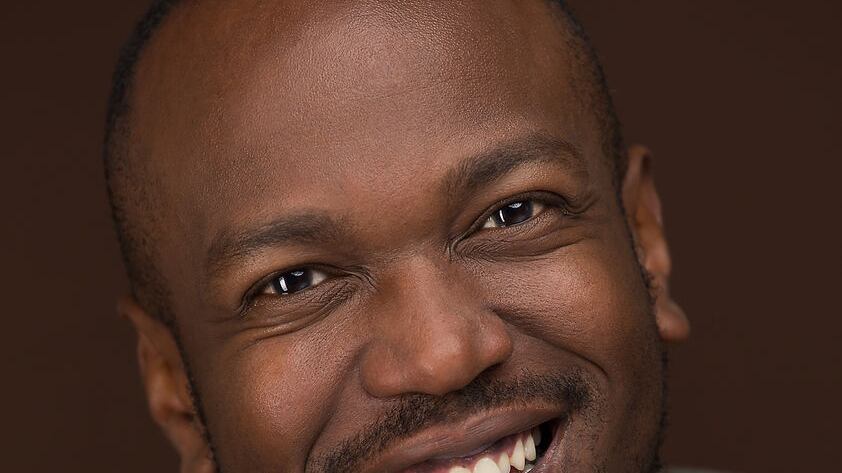Portland theater mainstay James R. Dixon likes to say that an actor’s job is to audition. Maybe in a perfect world that would be all. In this one, Dixon has found that Black and queer performers need louder voices than the platonic ideal of auditioning allows.
Taking ownership of their community’s stories is how Dixon, who’s trodden Portland stages since 2014, came to direct Robert O’Hara’s Bootycandy in 2019, producing the play under the BlaQ Out banner for Fuse Theatre Ensemble—and undertaking years of equity facilitation. (Dixon is the producing artistic director of BlaQ Out, which is devoted to promoting the work of Black and queer artists.)
On the heels of directing the intimate interview-based documentary Gender-Fication, Dixon (who is also a veteran of Pulp Fiction and Die Hard musical parodies) is now preparing to helm their second fully staged play, The Children of Edgar and Nina by Jarrett McCreary in late August at Common Grounds Coffeehouse.
“I direct from the heart, from the body and from the community as much as I can,” Dixon says.
For Pride, WW caught up with Dixon to discuss their most meaningful onstage role, how to work on equity without it being a separate job, and the influence of dearly departed Oregon Children’s Theatre artistic director Stan Foote.
WW: Your documentary Gender-Fication is a major act of listening to queer stories. Do you take that back into your art?
James R. Dixon: It was definitely what I call a listening session. But as a director and producer, especially focusing on queer and Black theater, I take that as a moment to absorb [these stories]. There are characters I play on stage that have similar lives.
You’ve said you became a director out of necessity. What was the necessity?
When we don’t allow people to tell their own stories, we lose a bit of ourselves. I was in Show Boat watching a white woman in a black wig playing Julie LaVerne when we’ve got mixed-race women on stage. I needed to be a producer because I worked with so many people who didn’t give me the mentorship I needed, so I needed to get in the game so that I could remain accountable.
What acting role has meant the most to you?
We just lost Stan Foote, who gave me one of my biggest roles [as Earthworm] in James and the Giant Peach. It was a group audition…the notes were a little out of my range, but Stan said, “James, sing what’s comfortable for you.” He allowed me to be myself and be in my body.
At Oregon Children’s Theatre, you always get to meet [the kids] and sign their books. I remember after one show there was this little Black kid with a white dad…[peering] around his tree trunk of a leg. I knew what that was. It changed me. Stan made a huge impact on this town, and that was a role that really shaped my career.
How do you have the energy to be an equity consultant on top of everything else?
Honestly, I don’t. I have a full-time job as a tech support manager and work in mental health for the Veterans Administration. I prefer to focus my energy on people that are ready to work and already engaged in [equity]. I would never tell an actor they need to be queer to be in my show. But it will be clear this is a queer show, and it would be ideal to have the least amount of conversations around what it means to be queer.
Do you want to dial into a certain artistic area during the next few years?
I would like to focus primarily on directing. As far as producing, I want BlaQ Out to grow. It’s more important that it’s there than that it be mine. I just want to do Black, queer work and focus on that as much as I can.
